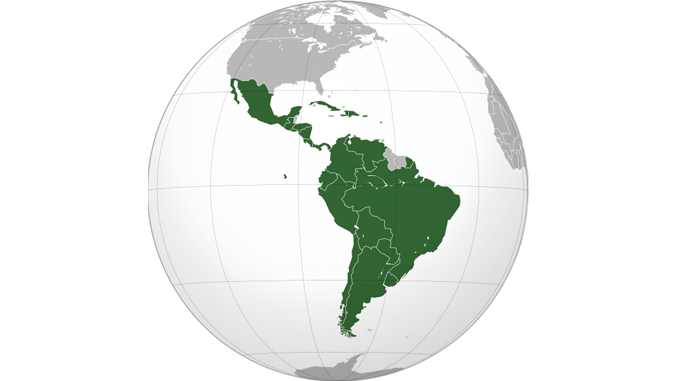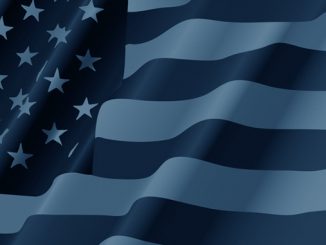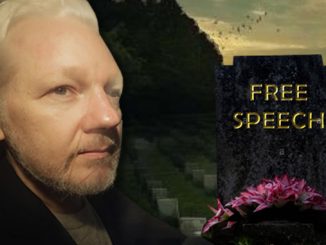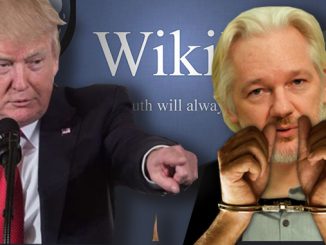
News today is “something like an adventure,” says Phil Giraldi: Venezuelan President Nicolas Maduro is ruling by decree and ignoring the National Assembly while his people suffer due to the failing economy, and Ecuador’s president and close Washington ally Lenin Moreno intends to revoke the asylum granted by his predecessor to WikiLeaks founder Julian Assange. President Trump’s response to this South American chaos? He wants to “do justice” when it comes to Assange, meaning bring him to trial, and force regime change in Venezuela via U.S. military might.
By Philip Giraldi
It is the first time in my lifetime that opening up the morning newspaper is something like an adventure. Last week I learned that the Donald Trump White House had considered a military intervention in Venezuela to remove the admittedly dystopic and despotic government of President Nicolas Maduro. For those who are not following developments in the Southern Hemisphere closely, the Venezuelan “Bolivarian” government is an odd mixture of South American old-style communism based on an aggressive populism that promotes class warfare. Political demonstrations over the past year protesting the deteriorating economy and the threat to what remains of the country’s democracy have been suppressed by violence initiated by heavily armed police in which dozens died. The National Assembly, which is controlled by the political opposition, is being ignored by Maduro, who is ruling by decree. Since he controls the security apparatus there is no one to tell him what he cannot do.
Venezuelans, sitting on huge oil reserves, are starving, unemployed, plagued by hyperinflation not seen since post-World War I Germany, and fleeing the country in the hundreds of thousands. Credit both internationally and domestically has vanished and foreign companies that had set up shop in the country, which refuses to allow them any longer to repatriate their profits, have fled, meaning that consumer goods once readily available have disappeared from the shelves.
So Venezuela is indeed a basket case and a growing problem for neighbors in South America, but the ones who are suffering most are the Venezuelans themselves, who, one would think, should be the most likely candidates for removing their own government. Not so, according to President of the United States and Leader of the Free World Donald Trump, who, according to the reporting from advisers who actually sat in on the meeting, suggested that there might be a military solution to the problem, i.e., the United States should intervene to restore order and “democracy.” This discussion apparently took place nearly a year ago when the violence in Venezuela reached such a level that it appeared to be threatening to turn into something like a civil war in the country.
According to Associated Press, “As a meeting last August in the Oval Office to discuss sanctions on Venezuela was concluding, President Donald Trump turned to his top aides and asked them an unsettling question: With a fast unraveling Venezuela threatening regional security, why can’t the U.S. just simply invade the troubled country? The suggestion stunned those present at the meeting. . . .”
Trump’s aides reportedly discussed with him the dangers inherent in such a proposal, mostly in terms of costing support of Venezuela’s neighbors, who are already behind punitive sanctions to isolate Maduro’s regime and have been swamped with a refugee crisis. Intervening would also revive unpalatable memories of American incursions in various Latin American countries in the 20th century.
But Trump persisted in his support of a military incursion as a possible option, citing relatively recent Reagan-era interventions in Panama and Grenada as success stories. He also mentioned the possibility of an armed response in a press conference on the following day, a comment that predictably produced a wave of support inside Venezuela for Maduro.
Washington, which appears to have no actual overall policy toward Latin America, is also acting behind the scenes in neighboring Ecuador. As president of Ecuador, Rafael Correa, who is now retired from office, was generally remembered as a good leader for the Ecuadorian people, a vocal critic of Washington’s policy in Latin America, and, more particularly for his support of WikiLeaks’s Julian Assange. Since his replacement, Correa has been targeted by the Washington establishment as an enemy and there has been considerable pressure on his successor, Lenin Moreno, to bring Correa to trial for alleged crimes.
Moreno, a former Correa ally, has been currying favor with Washington by blocking Correa from being able to run again for the presidency. He has also turned on Assange, the Australian journalist who has for six years been residing in the Ecuadorian embassy in London under diplomatic protection arranged by Correa.
Moreno wants to revoke the asylum granted to Assange and has prevented him from continuing his journalistic activity by confining him to a tiny part of the building with only limited access to the outside world. Assange has gone from being a guest to being a prisoner in the embassy, and there is concern that he will shortly be expelled from the building, which will result in his immediate arrest by the British and his extradition to the United States where he would face life in prison.
Correa understood clearly that Moreno viewed him as part of the problem. Realizing that he and his family were in danger, he moved to Belgium, but an Ecuadorian court has now asked the Belgians to detain Correa on fabricated criminal charges and extradite him back to Ecuador for trial.
So far, the Belgians have not complied with the Ecuadorian demand, but if Washington gets behind it and quietly nudges Brussels, anything can happen. And, of course, the real story is Assange. Think what one might about Assange’s line of work, he is a legitimate journalist. He received information from whistleblowers and anonymous sources that he published when it was clear that the authorities and politically powerful were behaving illegally or unethically. He did not personally steal classified information and there is even some suggestion that WikiLeaks took care not to publish material that was damaging to individuals personally. Exposing political corruption in entities like Hillary Clinton’s campaign was, however, considered to be fair game, just as it should be.
Assange has been declared guilty without a trial by both the U.S. media and the inside-the-Beltway chattering class in the United States, and his conviction in what might pass for a court of law is a certainty. Ecuador appears to be willing to do what it can to help the process along.
Trump has indicated his belief in Assange’s guilt and stated his desire to “do justice.” The unprincipled response is one with the stated desire to invade Venezuela to sort things out.
Simple responses, all having to do with laying on punishment. That is what the foreign policy of the United States has become.
Philip Giraldi is a former CIA counter-terrorism specialist and military intelligence officer and a columnist and television commentator. He is also the executive director of the Council for the National Interest. Other articles by Giraldi can be found on the website of the Unz Review.





I agree completely with your position on Venezuela, Maduro and
Chavez have been a nightmare, however this is a Venezuelan and a
Latinamerican problem and the United States should not intervene.
On Ecuador I strongly disagree, because Rafael Correa is a Marxist
and has been a close ally with Castro, Chavez and Maduro, the equatorian
people wisely rejected him on time, otherwise Ecuador would become
another Venezuela.